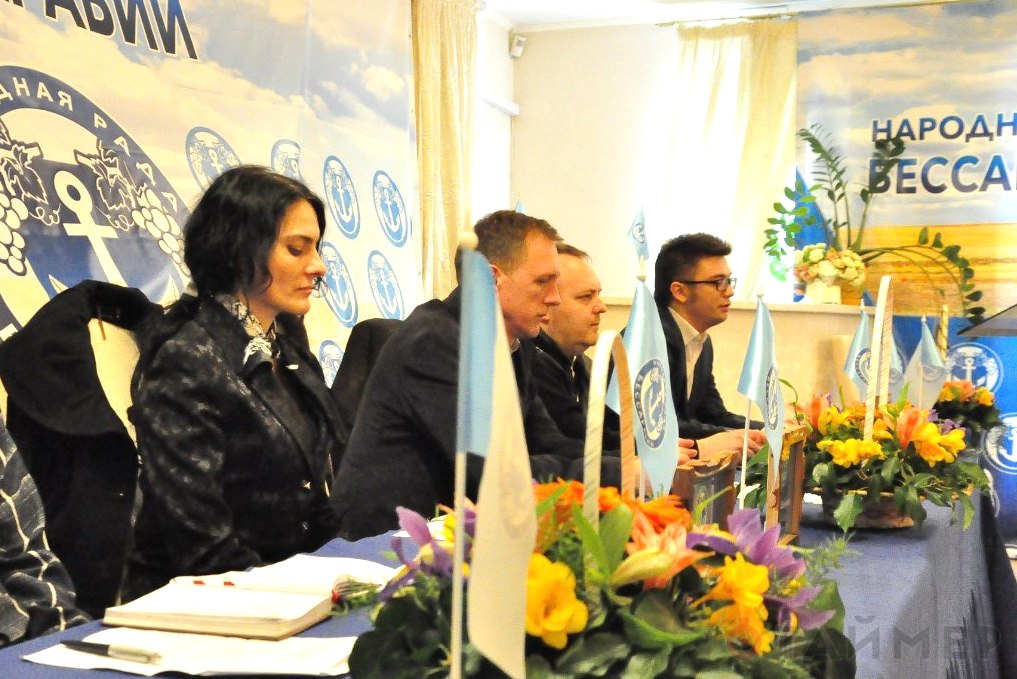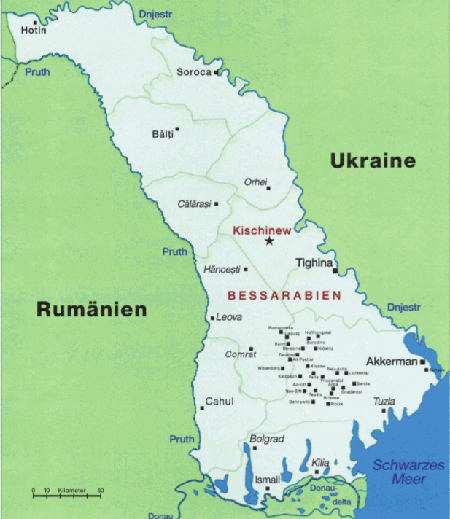A few days ago, the following tweet was tweeted:
8 people were arrested on #Odessa last night for unveiling a large banner of the “People’s Council of Bessarabia” (part of today’s Moldova)
— Nikolai Holmov (@OdessaBlogger) April 3, 2015
For those unaware, a very brief and superficial history of Bessarabia follows:
It was born of the Russian Empire’s annexation of part of the Ottoman Empire during the Ottoman-Russian war of 1806 - 1812, and subsequently became a Russian Oblast from 1812 - 1871. From 1871 - 1917, Bessarabia became a Governorate (Guberniya) of the Russian Empire until it was dissolved in the December of 1917 when Bessarabia became part of the Moldavian Democratic Republic.
Approximately 70% of what was Bessarabian territory during the Russian Empire remains within the territory of modern day Moldova. The other approximately 30% (Izmail, Bolgrad etc) is within what is now Odessa Oblast, and thus Ukrainian territory.
In short, a few centuries of Ottoman rule where Bessarabia didn’t exist by way of name, followed by 105 years of Russian Empirical rule which saw the christening of Bessarabia by way of name, and ad hoc, robust spats with Romania over the territory, followed by 98 years - and counting - of mainly Moldavian, partly Tranistrian for a few decades if you de facto recognise Transnistria, and also Ukrainian governance over a small part of the historical territory.
Therein is a canned history of what was Bessarabia.
Yesterday saw the “official launch” of the People’s Council of Bessarabia in the Tarutinskaya Rayon of Odessa. The People’s Council of Bessarabia website, registered in Moldova, Transnistria, Odessa, Ukraine, Moscow also came on-line.
 Photo via Igor Markov’s “Timer”
Photo via Igor Markov’s “Timer”
As the historical concept of “Novorussiya” failed miserably to take hold in Odessa when The Kremlin forcibly intervened in Ukraine a year ago - it appears another historical dead horse called Bessarabia is about to be resurrected and publicly flogged in the hope it moves in the very westernmost regions of Ukraine (and within Moldova too). Attempting to destabilise two nations for the price of one historical resurrection in such hard economic times, for The Kremlin, currently makes good fiscal sense.
There were about 100 people present at the launch of the People’s Council of Bessarabia. Naturally there were journalists and a few deputies from local councils, whether in support, or whether to gauge first hand what the People’s Council of Bessarabia is all about should they have to confront it, remains unclear - but time will tell as it always does.
But there were also some “interesting people” bordering upon “persons of interest” in attendance.
Firstly, from Odessa, the pro-Kremlin social media/website promoting journalist Artyom Buzila was sat on the People’s Council top table - indicating perhaps that he has moved across into politics per se.
Dmitry Soin, the rabidly pro-Kremlin creator of the “Breakthrough/Proriv” Transnistrian party was also present - although after a falling out with the Transnistrian authorities, Mr Soin is now residing elsewhere. Leader of the Moldavian political party “Patriots of Moldova”, Mr Mikhail Garbuz, and former Moldavian MP Grigory Petrenko also went, with the Governor of Gagauzia, Mihail Formuzal, speaking at the event.
From Bulgaria, politician/journalist Velizar Enchev, Eugene Velkova, head of the European Communication Centre Bulgaria, and Svyatoslav Proynov, leader of the youth movement within the Bulgarian anti-EU party “Attack” were there.
Lastly of note, the Chairman of the Union of Transnistrians, Dmytro Zatuliveter, who stated “Our mission is that Bessarabia is granted the status of national-cultural autonomy. Our peoples must be adequately represented in the political and economic life of Ukraine, our community should influence the decisions that affect our region.” - making no mention that approximately 70% of what was Bessarabia lies outside of the territory of Ukraine.
Thus, Odessa (and Ukraine) is confronted by two Kremlin inspired/conspired political projects within the Oblast. As written about some time ago, there is “Operation Porto Franko” which seeks to separate the city under the guise of a free port, and now in the west of the Oblast, after the abject failure of Novorussiya to take hold, is reborn yet another historical Trojan Horse - this Potemkin political entity being the People’s Council of Bessarabia.
Over time, how much traction this will actually get within the ethic Bulgarian communities in towns like Izmail and Bolgrad is difficult to say - but its something worth keeping an eye on.

Pingback: Bessarabia, another (rather sloppy) attempt of separatism in Odessa? | ap()
Pingback: Odessa SBU continue rolling up terrorist groups - Timing? - OdessaTalk()
Pingback: Russia Roundup - April 10, 2015()